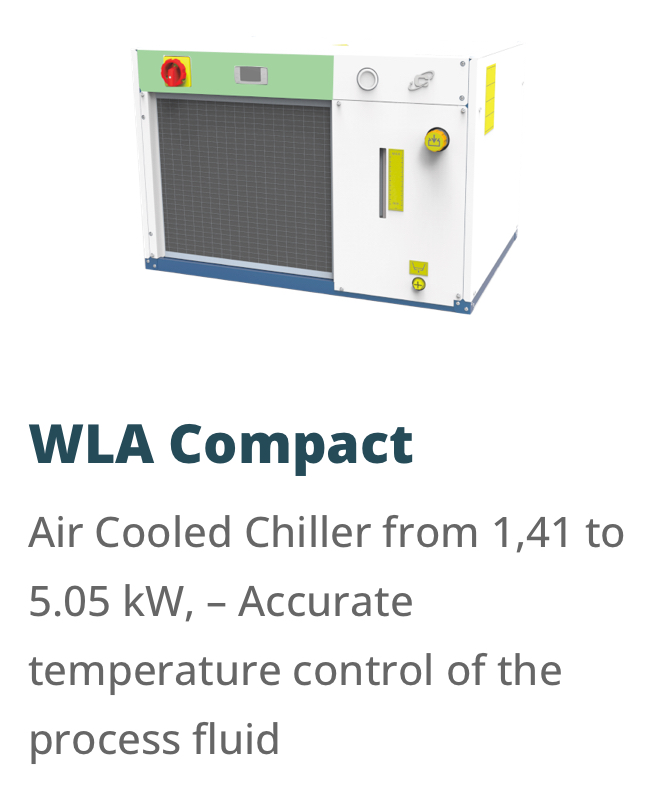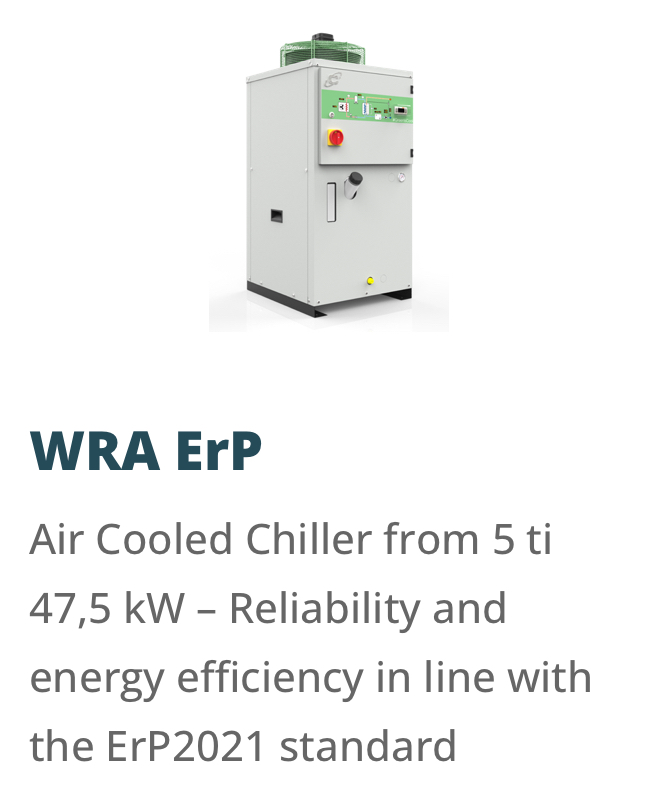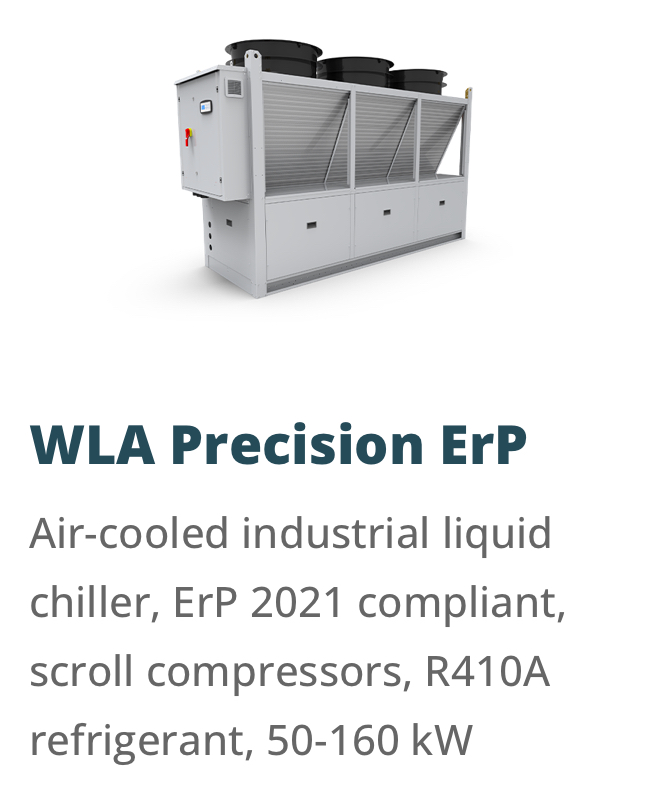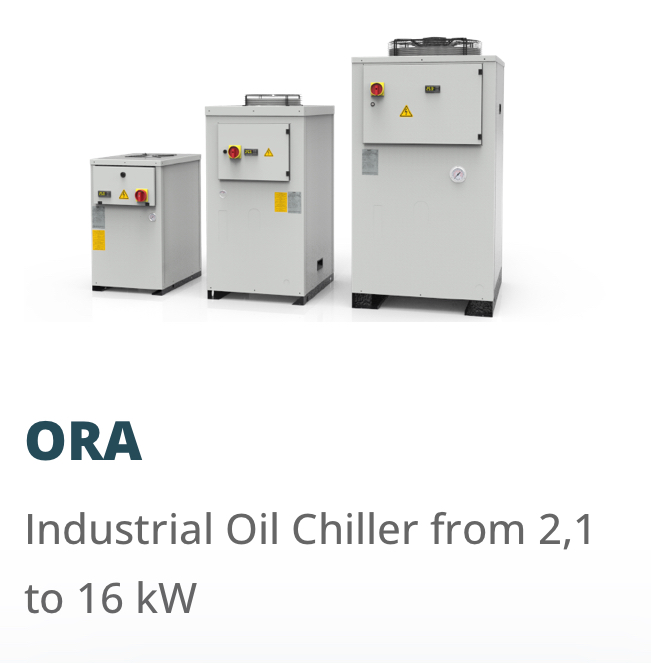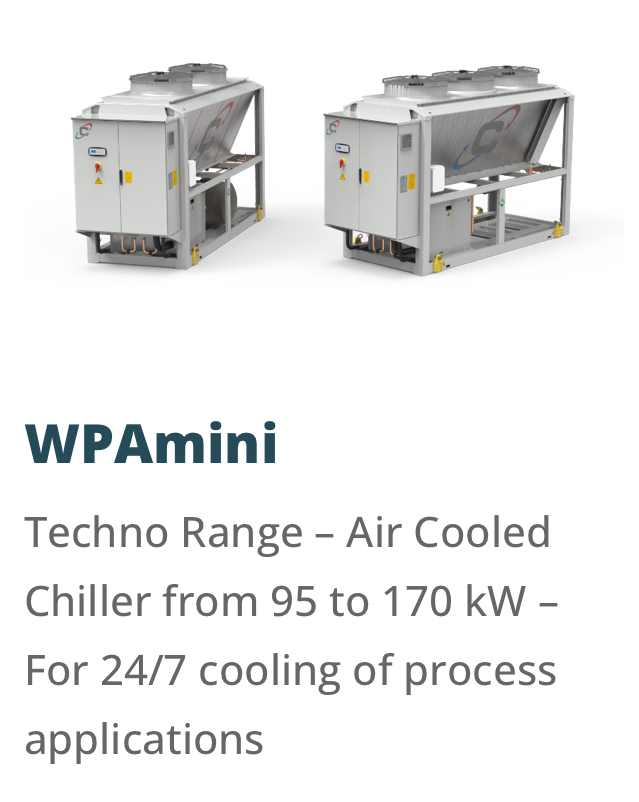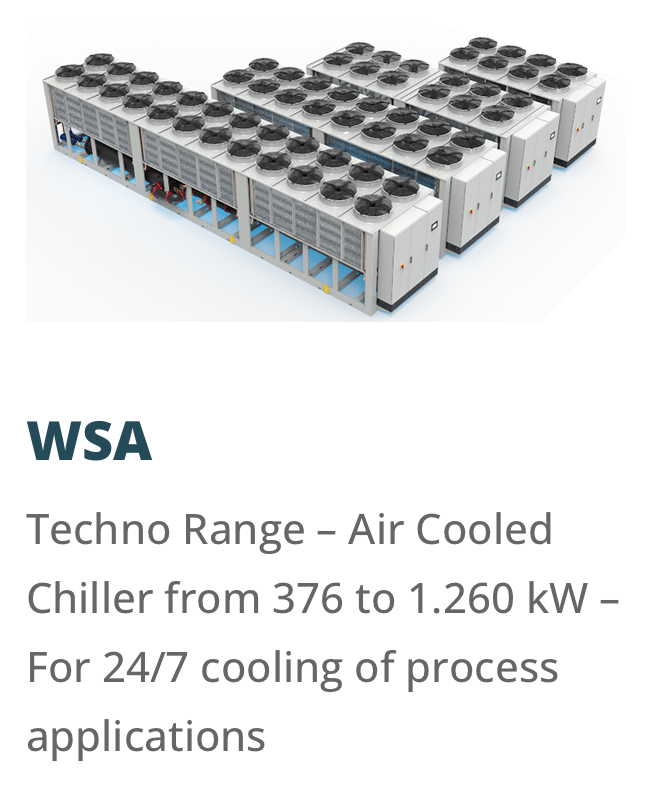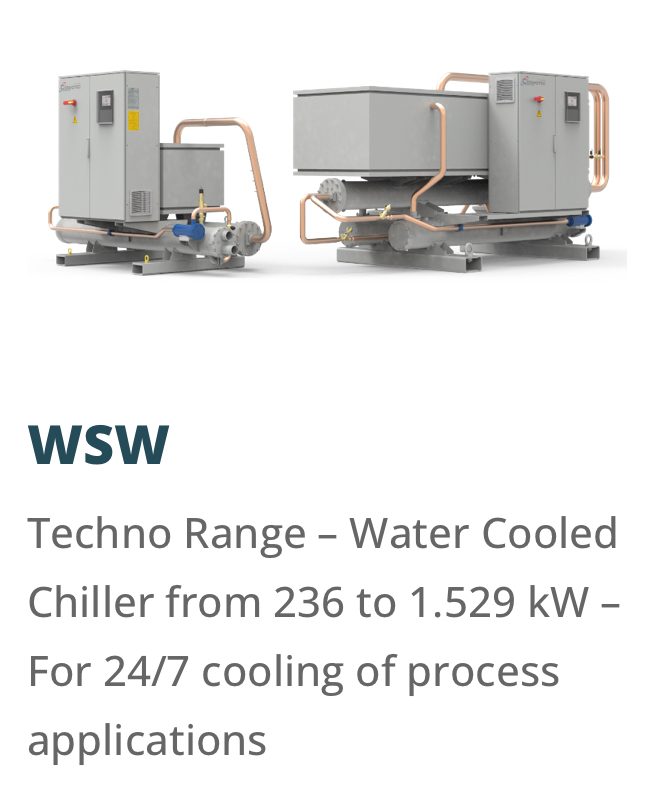
What is an industrial chiller?
Industrial water chillers are used in a variety of applications where chilled water or fluid is circulated through process equipment. They are characterised by an immediate response to changing load requirements, the ability to modulate their cooling capacity, high control accuracy and reliability even within the limits of their operating conditions. Industrial chillers are commonly used to cool products and machinery in a multitude of different applications including injection moulding, machine tools, lasers, food, beverage, semi-conductors and more.
Why an industrial chiller?
No industrial process, machine or engine is 100% efficient and heat is the most common by-product of these inefficiencies. If this heat is not removed, it can cause downtime and even premature failure. It is therefore necessary to include cooling in the design of an industrial process to avoid these problems and increase its efficiency and reliability.
How does an industrial chiller work?
Process chillers contain a chemical compound, called refrigerant, and work on the basic principle of compression and phase change of the refrigerant from liquid to gas and back to liquid. The process by which heat is removed from a process fluid and is based on the process of compression and expansion of the refrigerant is called the refrigeration cycle.The main components that compose the refrigeration circuit are:
- Compressor: gives the gas the energy needed to change from low-pressure gas to high-pressure gas
- Condenser: heat exchanger in which ambient air (or water) removes heat from high-pressure gas by cooling it to a high-pressure liquid
- Expansion Valve: allows expansion of the refrigerant fluid from a high-pressure, high-temperature liquid to a low-pressure, low-temperature gas/liquid mixture.
- Evaporator: heat exchanger in which the gas/liquid mixture at low pressure and low temperature absorbs heat from the process water or water/glycol solution
What is the difference between air conditioning chillers and process chillers?
Process chillers are designed to operate at different temperatures, with different fluids and varying flow rates. They have the possibility of integrating several pumps and several hydraulic and cooling circuits; they normally also include a hydraulic tank to compensate for sudden variations in the thermal load on the user side. This flexibility of use and the high level of reliability are the main factors that differentiate it from air conditioning chillers. The energy efficiency assessment of an industrial chiller follows the rules of European Regulation (EU) 2016/2281 for high temperature chillers (SEPR HT) and (EU) 2015/1095 for medium temperature chillers (SEPR MT).

